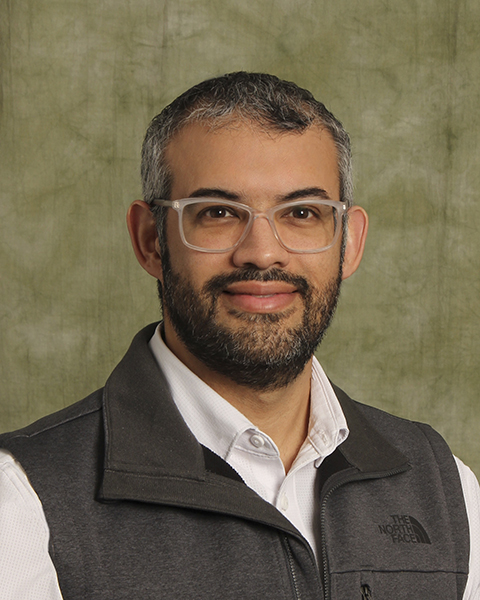Interested in Studying Behavioral Neuroscience?
You can find detailed information on our graduate program recruitment site.
The graduate program in Behavioral Neuroscience offers a combined Master of Arts and Ph.D in Behavioral Neuroscience, and is supported by 10 faculty who are highly active in path-breaking neuroscience research. Because our program is situated largely within the Psychology Department, most research labs include a strong emphasis on delineating neural substrates of behavior. The program of study includes a classic blend of intensive coursework, program-oriented activities to support career and professional development, and individualized research training within the mentor’s laboratory, culminating in a highly-individualized experience tailored to meet the needs and aspirations of the student. Moreover, the highly collaborative culture of our program provides ample opportunity to cross-train in adjacent labs with common scientific interests. Together, these elements provide strong critical thinking and analytical skills that can be applied in a wide variety of career options either directly or indirectly related to neuroscience research.
Most students complete their Ph.D. within 5-6 years (national average is ~5.5 years). Below are the major milestones we expect our students to achieve:
- Year 1: Propose Master's project
- Year 2: Defend Master's project
- Year 3: Complete Preliminary Examinations & Propose Dissertation
- Year 4: Conduct experiments and begin writing dissertation
- Year 5: Complete experiments, writing, and defend dissertation
Of course, all students are expected to conduct extensive research during their entire graduate training period. Students are funded through a combination of Teaching Assistantships, Research Assistantships, training grants and individual fellowships. Most students prepare NRSA predoctoral fellowship applications either through enrollment in a grant-writing course, or as part of their Preliminary Examinations, with many of these applications being submitted to NIH for funding consideration. More specific information on program requirements is provided below.
Behavioral Neuroscience Degree Requirements
The Department-wide graduate degree requirements and courses for the psychology program are listed in the University Bulletin. Specific requirements for the Behavioral Neuroscience program are described in the Student Faculty Handbook.
For more information on our graduate training program, please contact the Director of the BNS area: Marvin Diaz, PhD
Behavioral Neuroscience Admission Information
As of the 2019 application cycle, GRE General test scores are no longer required for application to the Behavioral Neuroscience PhD Program.
To formally apply to our graduate program at Binghamton University, you must complete an application by Dec. 1. Please follow the directions on how to apply described on the Graduate School website.
Admission to the graduate program is highly selective, which allows faculty to devote a great deal of individual attention to each of our students. Admission is based on:
- Academic performance as an undergraduate
- Work history and/or research experience
- Letters of recommendation (extremely important)
- GRE scores are not required
Admissions decisions are also based on the fit between the research interests of a particular faculty member and those of the applicant. Preference is given to students with a clear research interest that matches that of a faculty member in the area. However, students are permitted to change laboratories, and collaboration across labs within and beyond the department is both permitted and encouraged.
Research in Behavioral Neuroscience
A strong emphasis on research and the quality of our research programs has made the Psychology Department one of the most robust and successful departments at Binghamton University and beyond. Students are expected to develop the ability to initiate, execute and interpret their own research projects.
Lecture courses provide a broad foundation in scientific principles as well as detailed knowledge of a student's major area of study. Advanced seminars and hands-on research experiences bring students to the current frontiers of their specialties.
Graduate students benefit from this highly productive research atmosphere and are exposed to a wide variety of research programs by direct participation, research seminars and colloquia in which both faculty and students participate.
- Philosophy of Graduate Training in Behavioral Neuroscience
- Research Themes in Behavioral Neuroscience
- Techniques in Behavioral Neuroscience
Featured Behavioral Neuroscience Faculty
- Florence Varodayan - Unraveling the connection between brain activity and addiction
- Marvin Diaz - How does prenatal exposure to alcohol rewire the brain?
- David Jentsch - Finding the genes and brain systems behind impulsivity
Research Centers available to support Behavioral Neuroscience
The Center for Development and Behavioral Neuroscience brings together many faculty and graduate students with common interests from multiple research backgrounds within the behavioral neuroscience field. Both the center and the department frequently sponsor guest scientists as colloquium speakers or as visiting researchers. The CDBN also provides Travel Fellowships and assistantships for graduate students.
The Developmental Exposure Alcohol Research Center (DEARC) is a NIAAA-funded P50 Center which provides research funding to many of the labs in Behavioral Neuroscience. The DEARC focuses on two early developmental periods during which alcohol exposure is most prevalent, including prenatal alcohol exposure through maternal consumption, and adolescence, a time when binge drinking is common.
The program also is home to the Developmental Neuroadaptations in Alcohol and Addiction (DNA2) Institutional Training Grant funded through the T32 mechanism by NIAAA. This training grant expands the program of career and professional development and funds 4 predoctoral plus 2 post-doctoral trainees annually.
After Graduation
The psychology graduate programs at Binghamton University are ranked within the top 25 doctoral programs at "Public Ivies." Our ultimate measure of success is the outstanding placement of our graduate students in the job market following their PhD. Our students have a 96 percent employment rate immediately following completion of their degree, with 61 percent of graduates seeking post-doctoral training (consistent with current national trends). Of our graduates who have secured long-term employment immediately after completion of our programs, 41 percent attain visiting assistant or tenure-track assistant professorships, 41 percent secure full-time applied/clinical research positions and 18 percent report industry-related research positions.
Like most programs, our graduates often first transition into post-doctoral positions at major universities, colleges and research centers such as the University of British Columbia, the University of Carolina at Chapel Hill, Tufts University's School of Medicine, Cornell University, Montefiore Medical Center, Brown University, University of North Carolina at Chapel Hill, Medical University of South Carolina, University of Lausanne (Switzerland), University of British Columbia (Canada), the National Institutes of Health, the United States Air Force and many others. Taken together, this suggests that our programs produce top-tier students who are able to successfully compete at world-class institutions.
A growing number of our doctoral graduates have elected into positions in the pharmaceutical or biotechnology industries, working for companies and research facilities such as Lilly Pharmaceutical, Purdue Pharma, Merck Research Laboratories and Lineberry Research Associates. Other students are now working in medical writing and communications, science administration, or other government policy agencies where they use their sharp critical thinking and outstanding communication skills in richly rewarding careers.


